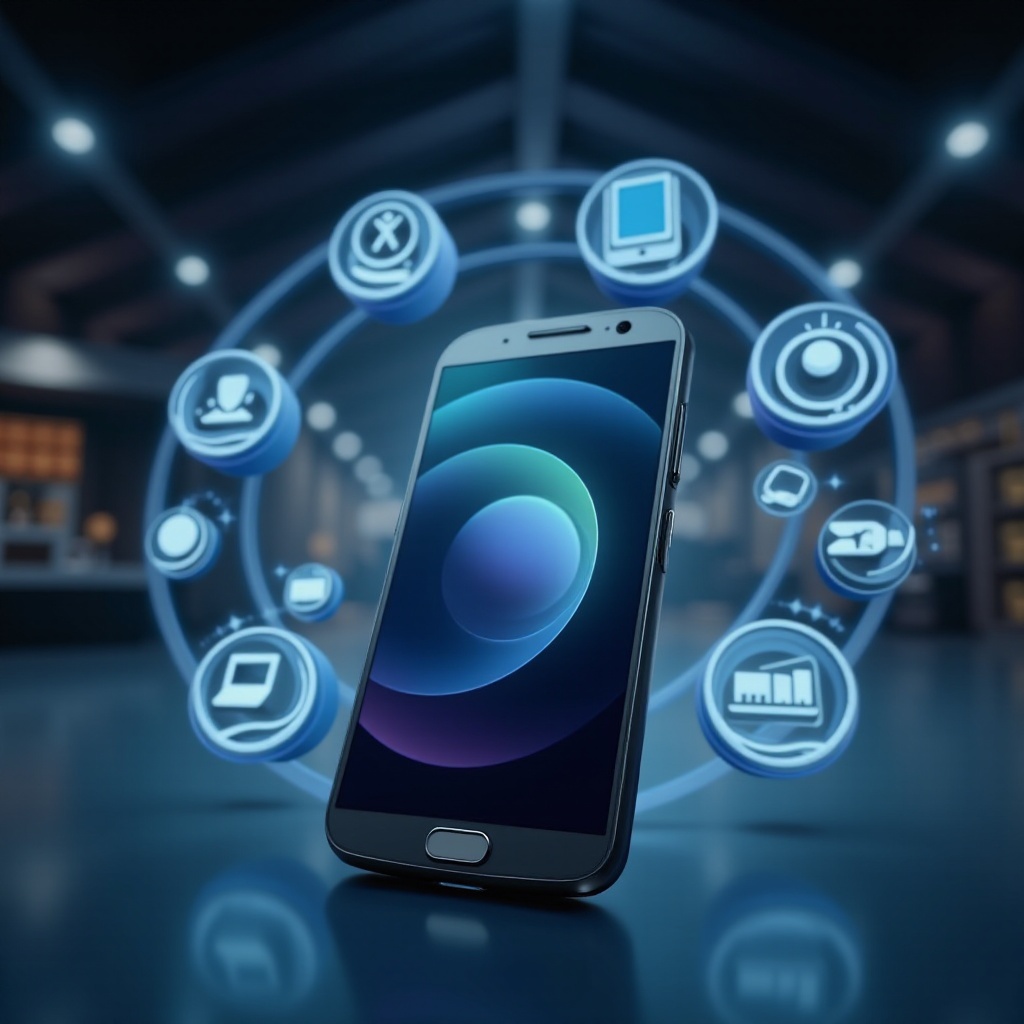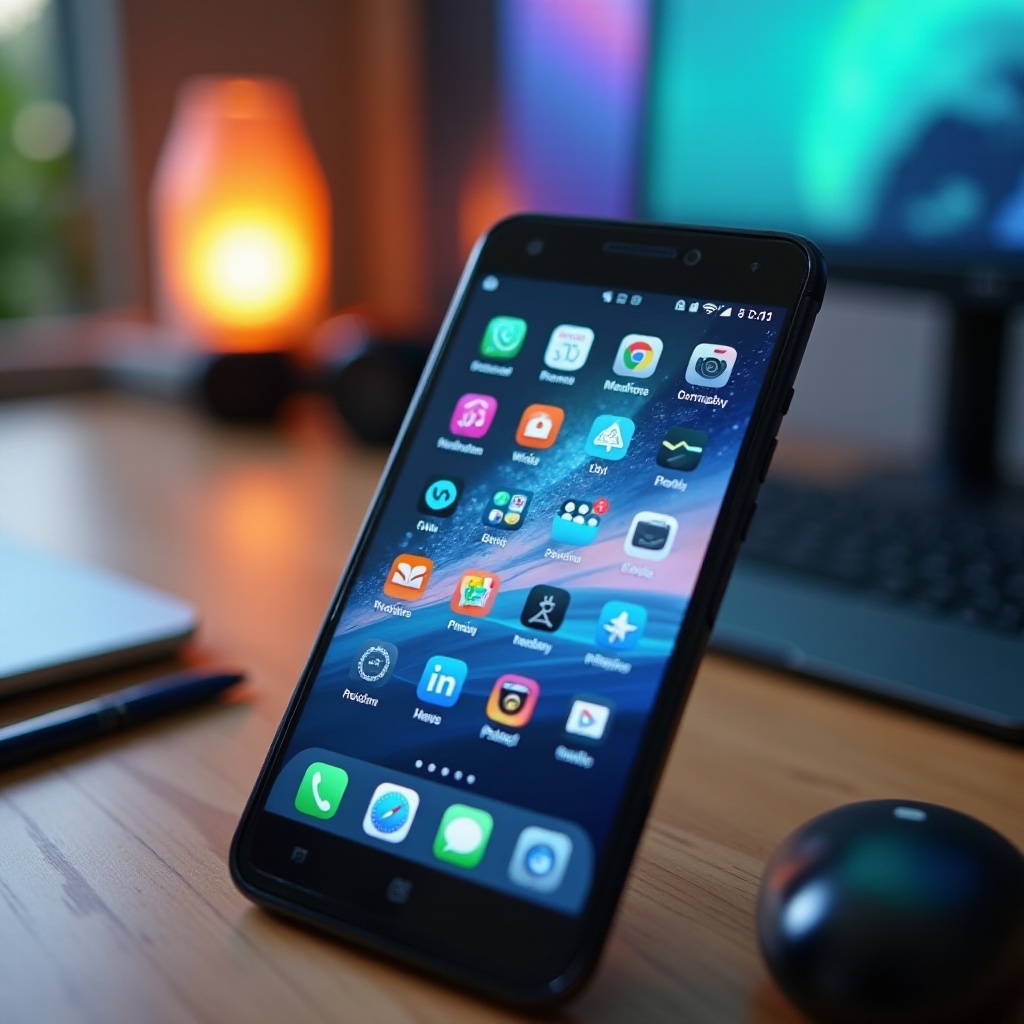What Can Android Do That iPhone Can't: Exploring Unique Capabilities
Introduction
Android and iPhone each have their loyal followers, but the debate over which is better often hinges on their unique capabilities. While iPhones are renowned for their seamless user experience, Android devices offer features and flexibility Apple simply cannot match. From extensive customizability and a wide range of hardware options to advanced software capabilities, Android users enjoy freedoms and functionalities that iPhone users can only dream of. Let’s take a closer look at the distinctive abilities of Android devices.

Customizability and User Freedom
Android is synonymous with customizability. At its core, the operating system allows its users unparalleled freedom to tweak and personalize their devices to suit individual preferences.
-
Launchers and Widgets: Unlike iPhone, which restricts customization to the home screen and a few widgets, Android users can entirely transform their device's look and functionality using custom launchers and widgets. Users can change icons, themes, and even the way notifications are displayed.
-
Rooting: Android also allows for rooting, which provides superuser access and the ability to modify the system's software, something iPhones strictly prohibit. This level of access enables users to enhance device performance, delete pre-installed bloatware, or even install a custom ROM for an entirely different user experience.
-
App Freedom: Android’s open ecosystem provides the freedom to download apps from third-party app stores, giving users access to a more extensive array of applications, which can be especially useful for finding niche or experimental tools not available in the Apple App Store.
These customizability features lead us to another key strength of Android devices—hardware flexibility.
Hardware Flexibility
Android's market comprises a vast array of devices from various manufacturers, providing unmatched hardware flexibility. This variety presents benefits that enhance user experience and cater to diverse needs.
-
Diverse Devices: From high-end models by Samsung and Google to budget-friendly options by Xiaomi and Motorola, Android offers devices across a wide price spectrum. This means consumers can find a phone that fits both their budget and their specific needs.
-
Expandable Storage: Many Android devices come with microSD card slots, enabling users to expand their device's storage capacity as needed. This feature is especially valuable for users who store massive amounts of data, media, or applications on their devices.
-
Battery Swap: Some Android phones feature user-replaceable batteries—a rarity in iPhones—which allows users to extend their device’s lifespan without needing professional repair services or resorting to power banks.
With such hardware diversity, Android users can find devices that suit their exact specifications. Now, let’s delve into the software aspects that set Android apart.
Advanced Software Features
When it comes to software, Android offers advanced functionalities that cater to both tech-savvy individuals and everyday users.
-
Multitasking: Android excels at multitasking, offering split-screen mode on many devices. This feature allows users to run two apps simultaneously, boosting productivity by enabling tasks like watching a video while texting or taking notes.
-
Enhanced File Management: Android provides access to the file system, akin to what you’d expect on a computer. Users can move, copy, and manipulate files with ease, a feature that makes managing large amounts of data straightforward.
-
Automation: Apps like Tasker extend Android's flexibility by allowing for detailed automation tasks. Users can automate daily routines—from adjusting settings based on location to triggering actions at specific times.
The advanced software features of Android enhance its connectivity and integration with various devices and systems, which brings us to our next point.
Integration and Connectivity
Android’s open ecosystem seamlessly integrates with a variety of devices and platforms, offering superior connectivity options. This ensures users have a cohesive technological environment, further enhancing the overall user experience.
-
Device Compatibility: Android works harmoniously with a broad array of devices, including smart speakers, smart TVs, and wearables from multiple brands. This interoperability ensures users can create a unified technological environment without being locked into a single manufacturer’s products.
-
Bluetooth and NFC: Android manages wireless connectivity like Bluetooth and NFC exceptionally well, allowing for features like Google Pay and seamless device pairing. NFC, in particular, facilitates easy sharing of media and information between devices.
-
USB Connectivity: Android also allows for USB On-The-Go (OTG), letting users connect external devices like USB drives, keyboards, and even musical instruments directly to their phones.
This level of integration ensures Android users can build an interconnected tech ecosystem that meets their distinct needs. Next, let’s explore some specialized features that set Android apart.

Specialized Features
Android devices come equipped with specialized features tailored to a variety of user requirements, enhancing utility and experience in unique ways.
-
Custom ROMs: Enthusiasts can install custom ROMs tailored to specific needs, boosting performance, improving battery life, or introducing groundbreaking experimental features. This flexibility is virtually unparalleled in the ecosystem of iPhones.
-
Guest Mode and Multi-User Support: For shared devices, Android offers guest mode and multi-user support, making it easier to lend your phone without compromising personal data or settings.
-
Screen Record and Gaming Modes: Gamers and content creators benefit from dedicated modes like screen recording, game enhancer tools, and the ability to stream gameplay directly to platforms like Twitch.
The specialized features highlight Android's unrivaled capability to adapt and cater to a broad spectrum of user needs. As we come to the conclusion, let’s summarize these points.

Conclusion
Android and iPhone continually push the boundaries of what smartphones can achieve, yet they diverge in key areas that define user experience. Android's customizability, hardware flexibility, advanced software features, abundant connectivity options, and specialized tools give it a distinctive edge. These attributes make Android the go-to choice for those who value freedom and variety in their tech. Whether you're seeking a device that can be tailored to your unique needs, or a system that integrates smoothly into a diverse technological environment, Android undeniably offers capabilities that stand apart from iPhone.
Embracing the strengths of both platforms allows consumers to choose a device that best meets their lifestyle and expectations, making the tech world richer and more diverse for all.
Frequently Asked Questions
What makes Android more customizable than iPhone?
Android’s open-source nature allows extensive customizability with third-party launchers, widgets, and rooting options, enabling more personalized user experiences.
Are Android phones generally cheaper than iPhones?
Yes, due to the wide range of manufacturers, Android phones are available across various price points, making them accessible to a broader audience compared to the generally higher-priced iPhones.
Can I run multiple apps simultaneously on Android?
Absolutely! Android’s multitasking capabilities, including split-screen mode, allow users to run and interact with multiple apps at the same time efficiently.



